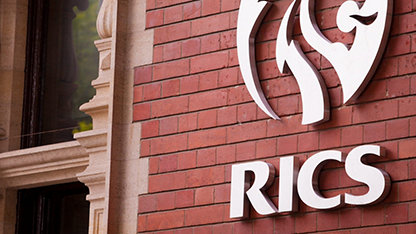Transport for London's Conflict Avoidance Panel has been shortlisted in the British Construction Awards 'Partnership Initiative of the Year' category. The prestigious British Construction Awards recognise and reward excellence in both project delivery and delivering outcomes for society.
The challenge for Transport for London
In 2013, the projected growth in London's population led to the demand for TfL to expand the capital's rail network and open up areas for new development to increase access to jobs and social opportunities. This major redevelopment required TfL to enter into billions of pounds worth of contracts. Both TfL and its contractors recognised that conflicts on complex infrastructure projects are inevitable, and that resolving disputes can be extremely slow and costly. Disputes can also cause tremendous damage to commercial relationships and put brand reputations at risk. They are a major reason why projects fail to complete on time and on budget.
TfL recognised that the solution was to embrace a collaborative culture and shared risk between themselves and contractors. Greater transparency and cooperation at all levels would mitigate against possible conflicts between parties. When differences do arise, they should be addressed early.
Working in partnership to find a solution to avoid conflicts with contractors
TfL, together with its main contractors, approached RICS and met with members of the Dispute Resolution Service team (DRS) to develop a process which would underpin collaborative working arrangements by adopting early intervention methods that would deal with emerging disputes quickly, cheaply and effectively.
With the support of DRS, TfL and contractors agreed a bespoke solution known as the 'Conflict Avoidance Panel' process. The process is designed to encourage cooperation and resolve differences early, without the need for court, arbitration or adjudication.
“TfL are leading the way in addressing a key reason for delays and overspend on projects by dealing with potential disputes early and quickly. The benefits to everyone are more than just financial.”
John Fletcher, Product Group Director ADR, RICS
The Conflict Avoidance Panel process not only enables issues to be resolved without the parties being combative, but actually promotes collaboration and trust to such an extent that it has been found to improve the ongoing client-supplier relationship.
Sue Barrett, TfL commented: "Avoiding conflicts saves time, cost and energy that would be better served in delivering projects. The CAP process helps resolve issues at the time of the event in the way the contract intended, it helps both parties.
From a commercial perspective it is a brilliant process compared to alternatives such as mediation, adjudication and arbitration."
John Fletcher, Product Group Director ADR, RICS said: "RICS is delighted to support TfL and contractors in developing the CAP initiative. Many organisations and businesses involved in construction and engineering are striving to improve their efficiency and cost-effectiveness. TfL are leading the way in addressing a key reason for delays and overspend on projects by dealing with potential disputes early and quickly. The benefits to everyone are more than just financial."
Case Study: Victoria Station Upgrade
The major upgrade on Victoria Station is being delivered by one of TfL's key delivery partners, Taylor Woodrow – BAM Nuttall JV (TWBN). An issue arose on the project relating to a difference in how the contract was interpreted, which led to a disagreement TWBN's entitlement to certain costs. Both TfL and TWBN project teams agreed to work together to prepare a joint submission to the CAP. This enabled common ground to be established, and the disagreement was narrowed and focused to the root of the issue.
This was achieved before the CAP was involved and this collaborative approach ensured that the CAP recommendation led to an outcome that was accepted by both parties.
This instance of CAP was extremely quick and provided exceptional value, with CAP costs amounting to just 0.2 per cent of value of the issue.
Winners of the British Construction Industry Awards will be announced at the awards ceremony in London on 9 October 2019.














